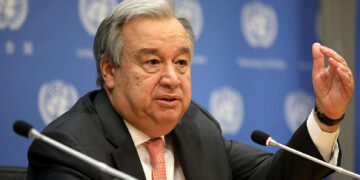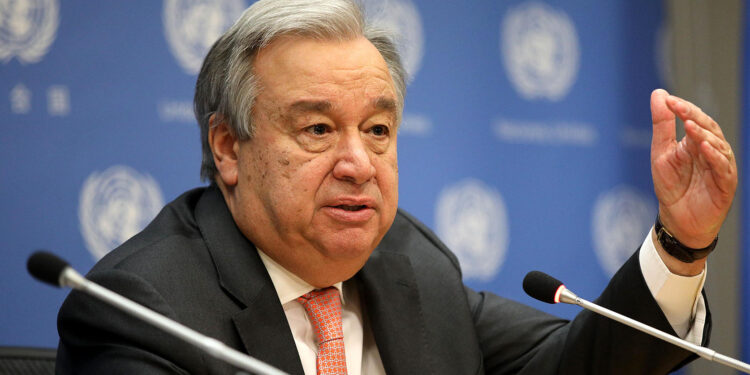By Ebi Kesiena
In 2022, Africans accounted for 31% of global cross-border human trafficking victims, according to the latest Global Report on Trafficking in Persons released by the United Nations Office on Drugs and Crime (UNODC).
The report, published on Friday, highlights how poverty, conflict, and climate change have exacerbated vulnerabilities across the continent.
Most African victims are trafficked within the continent, where displacement, insecurity, and worsening environmental conditions increase risks. Children are disproportionately affected, often trafficked for forced labour, sexual exploitation, and forced begging.
Globally, the report documents a 25% rise in detected trafficking victims between 2019 and 2022. Cases of forced labour increased by 47%, while the number of child victims rose by 31%. Girls constitute a significant 38% of child victims, primarily trafficked for sexual exploitation.
Criminals are increasingly coercing victims into cyber fraud and online scams, adding a modern dimension to the human trafficking crisis.
UNODC Executive Director Ghada Waly emphasised the urgency of coordinated cross-border efforts to dismantle trafficking networks, prosecute perpetrators, and support survivors. She stressed the need to improve victim identification and protection, particularly for women and children, who bear the brunt of trafficking.
The report finds that women and girls continue to represent the majority of trafficking victims worldwide, accounting for 61% of detected victims in 2022.
Among girl victims, 60% are trafficked for sexual exploitation. In contrast, 45% of trafficked boys are exploited for forced labour, while 47% are trafficked for other purposes, including forced criminality and begging.
Trafficking for forced criminality, such as online scams, has surged significantly, rising from 1% of total detected victims in 2016 to 8% in 2022.
The report provides policy recommendations aimed at improving victim identification and protection. It calls for enhanced international cooperation to combat human trafficking and ensure adequate support for survivors.


































